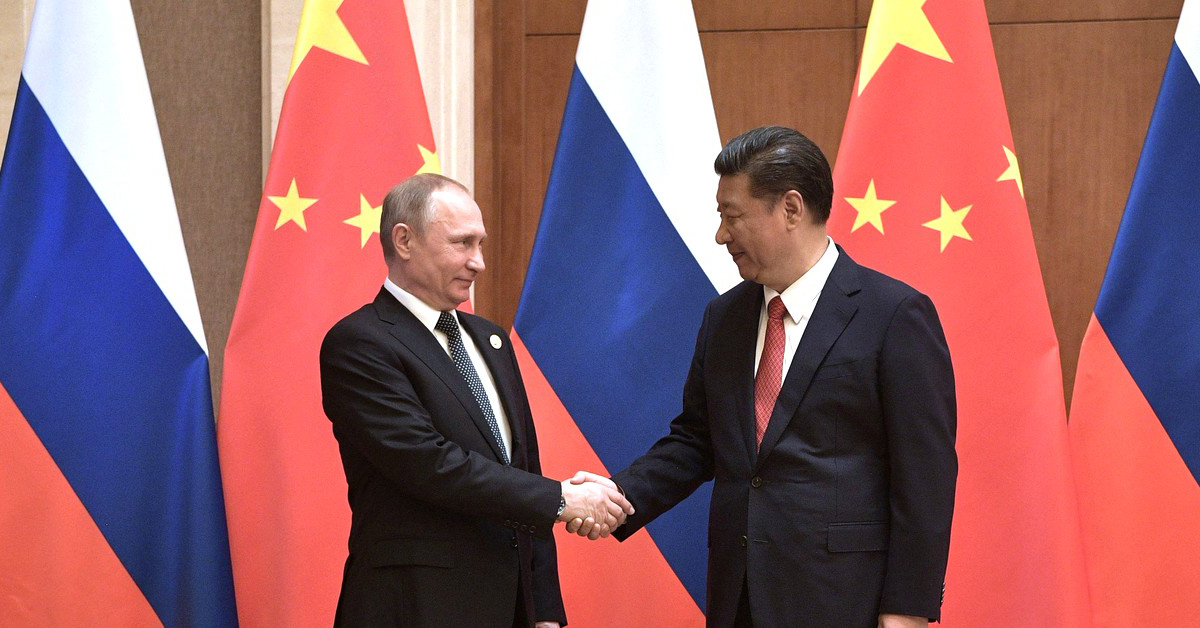This was published by the China-Global South Project on 17 June 2022. China Foresight is affiliated with the China-Global South Project and regularly provides opinion pieces for the weekly IDEAS China-Global South newsletter. Click here to subscribe to the newsletter.
Early next week, Ethiopia will host a China-sponsored Horn of Africa peace conference – the first of its kind. Taking place at the China-financed African Union headquarters in Addis Ababa, the event will be a key opportunity for Beijing to shine a spotlight on China’s provision of global public goods.
The summit follows the appointment of China’s Special Envoy for the Horn of Africa, Xue Bing, in February. Xue has since introduced and promoted China’s ‘Initiative of Peaceful Development in the Horn of Africa’, adding to China’s diplomatic outreach as seen in a number of high-level visits by China’s chief diplomats for Africa and the Middle East – Wu Peng and Wang Di – in Algeria, South Africa, Malawi, Tanzania, Senegal, Burkina Faso and Togo this week.
The peace conference evidently corresponds to China’s desire to protect Chinese citizens and assets in the region, objectives that have been among the main drivers of China’s gradual peace and security engagement across Africa. The latter has manifested in Beijing’s growing appetite for crisis diplomacy, financial and personnel contributions to UN Peacekeeping, as well as bilateral capacity building in areas such as law enforcement and military-to-military training.
However, the peace conference in Addis Ababa also demonstrates that China is increasingly willing to promote its own security-focused initiatives within these frameworks. As the Chinese ambassador to Sudan, Ma Xinmin, reportedly emphasized: the conference is an ‘initiative from China to enhance stability, development and good governance in this important region.’ After Western criticism of Addis Ababa’s military campaign against the Tigray People’s Liberation Front over the last year, Beijing might see the conference as an opportunity to further support Ethiopia’s central government and Prime Minister Abiy Ahmed while presenting China as a different external actor to the West. Talks between Ethiopian and Chinese officials in this regard have apparently been ongoing behind the scenes since the peak of Ethiopia’s conflict late last year, reflecting China’s willingness to step up its efforts to foster stability.
As Bernardo Mariani outlines in this recent report, in principle, China’s vision for addressing conflict and security challenges abroad is often presented as fundamentally different from that of Western countries. Premised on the security-development nexus, the idea that security needs economic development and vice-versa, China’s ‘developmental peace’ seeks to create stability rather than ‘liberal peace’. The goal is less to build democratic institutions and more to foster a stable political environment through economic growth and the empowerment of a strong central government.
Despite this difference, there are many areas where Chinese and Western interests overlap. China has been supportive of the African Union’s Silencing the Guns Initiative as well as of the African Peace and Security Architecture more broadly. Academics have further pointed to the growing convergence between Chinese and other actors’ interventions in practice, citing a growing focus on the need for development and stabilization – rather than liberal peace – in certain contexts. From Beijing’s perspective, the need for constructive engagement is obvious: in Ethiopia alone, China has invested over $US 13.7 bn from 2000 onwards, spurring a low-wage manufacturing sector and Ethiopia’s economic growth over the last decades.
But China also has a larger strategic incentive to engage in the Horn of Africa. The Addis Ababa – Djibouti railway, which was built and part-financed by China and opened in 2018, and its connection to the Djibouti International Free Trade Zone (DIFTZ), which has been integrated into China’s Belt and Road Initiative (BRI), as well as China’s first overseas military base in Djibouti, reflect how China has become a key stakeholder in regional economic and, importantly, security issues.
The Horn is thus quickly becoming a microcosm to assess China’s future as a security provider across the Global South. However, with Xue’s mandate including the ambitious goal of achieving ‘long-term stability, development and prosperity in the wider Horn, it is not certain China can live up to the task.
Indeed, while China may be able to use its economic and diplomatic clout to set the table for negotiations by convincing regional parties to participate in talks, Beijing has usually refrained from setting the agenda. Judging from China’s past engagement in the region – for instance in South Sudan – Beijing’s initiative will likely encounter obstacles in settling regional issues. This is mostly because setting the agenda is dependent on the willingness of China’s African partners. It is their agency that will ultimately determine the success of any China-led peace and security initiative.
A more peaceful and stable Horn is certainly in everyone’s interest. Sudan’s botched transition, the transnational threat of Al-Shabaab in Somalia, and ongoing ethnic and political tensions in Ethiopia reflect the need for new and creative solutions to regional security issues. China has been a driver of regional economic growth, but whether it can also be a guarantor of regional security remains to be seen.
This article gives the views of the author, and not the position of the China Foresight Forum, LSE IDEAS, nor The London School of Economics and Political Science.
The blog image, “AMISOM & Somali National Army operation to capture Afgoye Corridor Day 1 18 (7293172998)“, is licensed under CC0 1.0.






1 Comments